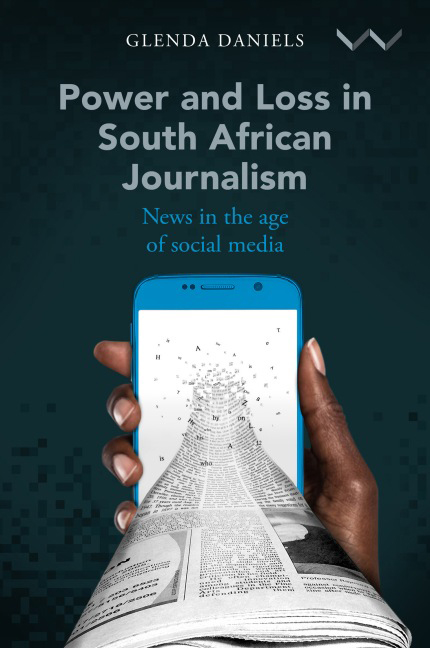Book contents
- Frontmatter
- Dedication
- Contents
- Tables and Figures
- Preface
- Acknowledgements
- Acronyms and Abbreviations
- 1 Power and Subjection in the Media Landscape
- 2 The Media, the State and Zuma’s ANC
- 3 ‘Zupta’: Power and Loss in Investigative Journalism
- 4 The Job Loss Tsunami
- 5 Going Online When You’re Offline: The Case of Community Media
- 6 The Anti-Feminist Backlash, the Glass Ceiling and Online Trolls
- 7 Decolonial ‘Green Shoots’
- 8 Power, Loss and Reimagining Journalism
- Epilogue
- Appendices
- Appendix A Press Code of Ethics and Conduct for South African Print and Online Media (effective from 1 January 2016)
- Appendix B amaBhungane Stories in the Past Two or Three Years
- Notes
- Glossary
- Bibliography
- Index
4 - The Job Loss Tsunami
Published online by Cambridge University Press: 10 September 2020
- Frontmatter
- Dedication
- Contents
- Tables and Figures
- Preface
- Acknowledgements
- Acronyms and Abbreviations
- 1 Power and Subjection in the Media Landscape
- 2 The Media, the State and Zuma’s ANC
- 3 ‘Zupta’: Power and Loss in Investigative Journalism
- 4 The Job Loss Tsunami
- 5 Going Online When You’re Offline: The Case of Community Media
- 6 The Anti-Feminist Backlash, the Glass Ceiling and Online Trolls
- 7 Decolonial ‘Green Shoots’
- 8 Power, Loss and Reimagining Journalism
- Epilogue
- Appendices
- Appendix A Press Code of Ethics and Conduct for South African Print and Online Media (effective from 1 January 2016)
- Appendix B amaBhungane Stories in the Past Two or Three Years
- Notes
- Glossary
- Bibliography
- Index
Summary
It is not only a theoretical question but a part of our experience.
Michel Foucault, ‘The Subject and Power’Like an unkindness of ravens, traditional media companies slashed journalist jobs in chunks over the past decade. The professional journalist workforce, according to a number of calculations, could be half of what it was ten years ago. The slashing took place in waves, some small, others gigantic – and unexpected. There were about 10 000 journalists in South Africa a decade ago but by 2018 there were approximately 5 000 – however, it is estimated that there are many more ‘media professionals’ (who freelance, produce content and work in public relations in the private and public sectors) than 5 000.
The halcyon days of bustling newsrooms in traditional media are gone, forever. Digital disruption is characterised by the 24-hour cycle of news, algorithms and social media often filled with the unverified information and disinformation characteristic of growing political populism. Digital disruption has replaced the tobacco fumes of the old newsroom in fundamental ways. The legacy newsrooms in South Africa today are like leaky ships owing to the tsunamis of retrenchments resulting from declining circulations, with no revenue model that works. About a thousand journalists were shed in the year 2012–2013, one of the big years for job losses. Times Media Group, which became Tiso Blackstar (now Arena Holdings), retrenched, as did eTV, and Media24 in the following years. In 2018, the American Huffington Post shut down Huffington Post SA, DSTV shut down Afroworld View television channel, and Afro Voice (The New Age) was liquidated, with hundreds of job losses.
Then the unexpected monster job-loss wave occurred on 29 October 2018 when the public broadcaster, the South African Broadcasting Corporation (SABC), which journalists in the past had experienced as a safe haven from job losses, if nothing else, announced that it would shed about a third of its 3 376-strong staff, including journalists. It declared through a press release on 30 October that 981 permanent jobs would be made redundant, and of the 2 400 freelancers 1 200 would be cut. The process was to be finalised by February 2019 – but it was not.
- Type
- Chapter
- Information
- Power and Loss in South African JournalismNews in the Age of Social Media, pp. 63 - 86Publisher: Wits University PressPrint publication year: 2020



